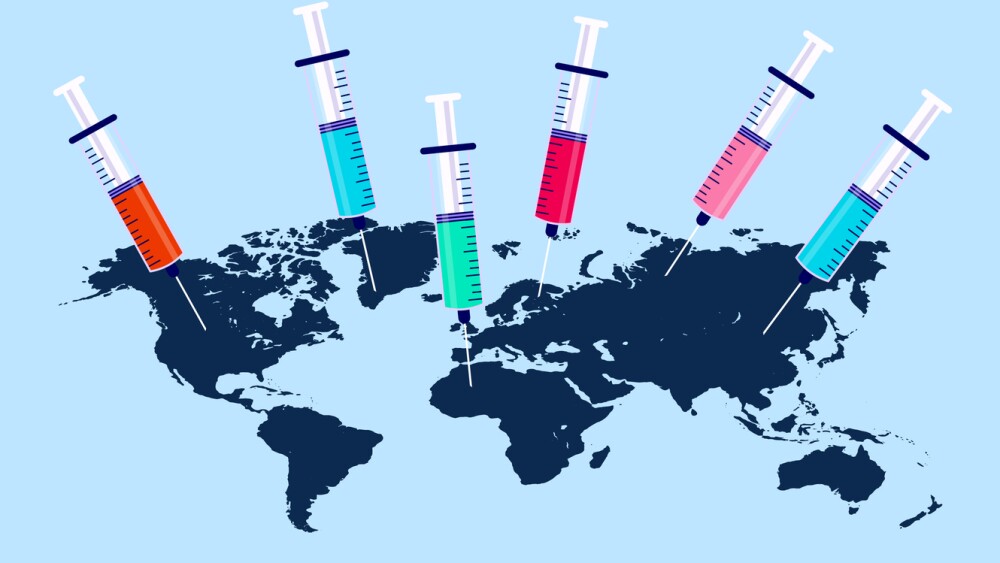SAN ANTONIO, Dec. 15 /PRNewswire/ -- Two leading cancer physicians and researchers affiliated with US Oncology Research gave oral presentations at the 2008 San Antonio Breast Cancer Symposium. Three others presented their research in poster presentations during the conference, which ran December 10 through 14.
Dr. Stephen Jones, US Oncology medical director and co-chair of its breast cancer research committee, presented findings on the largest of the three major trials comparing efficacy of an aromatase inhibitor/inactivatorversus tamoxifen as initial endocrine therapy. One objective of the study, titled "Results of the first planned analysis of the TEAM (tamoxifen exemestane adjuvant multicenter) prospective randomized Phase III trial zin hormone sensitive postmenopausal early breast cancer," was to evaluate exemestane (E) compared to tamoxifen (T) as initial adjuvant endocrine therapy.
The analysis represents the first of two co-primary endpoints that will be reported from this trial. The first co-primary endpoint compares early events by measuring disease-free survival (DFS: disease progression or death) at 2.75 years in 9,775 patients randomized to initial therapy with either tamoxifen or AROMASIN.
The analysis of DFS at 2.75 years demonstrated an 11 percent reduction in the risk of DFS events in favor of AROMASIN (HR=0.89; 95% CI, 0.77-1.03). Relapse free survival and time to distant metastases, which are breast cancer endpoints, were statistically significant. A second planned analysis of DFS after five years of therapy is expected in late 2009. Results from TEAM trial sub-studies were also presented at the CTRC-AACR San Antonio Breast Cancer Symposium.
"The TEAM trial is the largest aromatase inhibitor study ever to be done. The overall results are positive with an improvement in outcome measured by several parameters and a favorable safety profile for exemestane relative to a worldwide standard, tamoxifen," said Dr. Jones. "This very large study is a treasure trove of substudies providing valuable scientific information for women with breast cancer. The final endpoint of the study should be available next year, and that is a comparison of the switch strategy of tamoxifen switching to exemestane versus 5 years of exemestane. We await those results with interest."
The second oral presentation, "A Phase II study of Trastuzumab-DM1 (T-DM1), a HER2 antibody-drug Conjugate, in patients with HER2-positive metastatic breast cancer (MBC): Interim Results," was given by Dr. Sasha J. Vukelja of Texas Oncology.
This was a follow-up to a Phase I study previously given to patients with MBC who had progressed on or within 60 days of receiving trastuzumab-based therapy. Phase II was undertaken to assess the objective response rate of T-DM1 in patients who progressed, while receiving HER2-directed therapy and chemotherapy for HER2-positive MBC.
The study's investigators concluded that T-DM1 has single agent activity in patients with previously-treated HER2-positive MBC and appears to have anti-tumor activity in trastuzumab and lapatinib-pretreated patients. T-DM1 also appears to be well tolerated at the dose and schedule tested. T-DM1 continues to be investigated in patients.
"This is an exciting study for patients with HER2-positive disease who have failed prior HER2-directed therapy. This novel antibody drug conjugate represents another option for this group of patients. We are very pleased with the results and tolerability of the drug," said Dr. Vukelja.
In addition, US Oncology affiliated physicians presented the following poster sessions:
-- Dr. Rufus Collea, who is with New York Oncology Hematology and a member of US Oncology's Breast Committee, presented "Phase II study of pegylated liposomal doxorubicin (PLD) and carboplatin (Cb) can be administered with trastuzumab (H) in patients with metastatic breast cancer."
-- Dr. Jones presented "Preliminary toxicity results of a Phase II trial of adjuvant docetaxel/cyclophosphamde plus trastuzumab in HER2+ early stage breast cancer patients."
-- Dr. Jones' study, "Docetexal plus cyclophosphamide is cost-effective compared to doxorubicin plus cyclophosphamide, based on an economic analysis of US Oncology Trial 9735: Additional rational to avoid anthracyclines in the adjuvant treatment of operable breast cancer," was presented by Dr. Verma.
About US Oncology Research
The US Oncology Research network is an established community-based research operation specializing in comprehensive Phase I-IV trials and translational Phase I research. The research network is currently enrolling patients at 109 research sites, and is involved in 63 open trials.
Supported by US Oncology, the network has played a pivotal role in 24 of the last 30 cancer drugs approved by the Food and Drug Administration and more than 32,000 patients have participated in clinical trials. For more information, visit the "Research" section under "Our Services" on the company's Web site, http://www.usoncology.com.
About US Oncology
US Oncology, headquartered in Houston, works closely with physicians, manufacturers and payers to identify and deliver innovative services that enhance patient access to advanced cancer care. US Oncology supports one of the nation's foremost cancer treatment and research networks, accelerating the availability and use of evidence-based medicine and shared best practices.
US Oncology's expertise in supporting every aspect of the cancer care delivery system -- from drug development to treatment and outcomes measurement -- enables the company to help increase the efficiency and safety of cancer care. According to the company's last quarterly earnings report, US Oncology is affiliated with 1,227 physicians operating in 485 locations, including 92 radiation oncology facilities in 39 states. For more information, visit the company's Web site, http://www.usoncology.com.
CONTACT: Jennifer Horspool of US Oncology, +1-832-601-6151,
Jennifer.Horspool@usoncology.com; or Elizabeth Vocke, +1-813-775-6206,
Elizabeth.vocke@hillandknowlton.com, for The US Oncology Research Network
Web site: http://www.usoncology.com/




